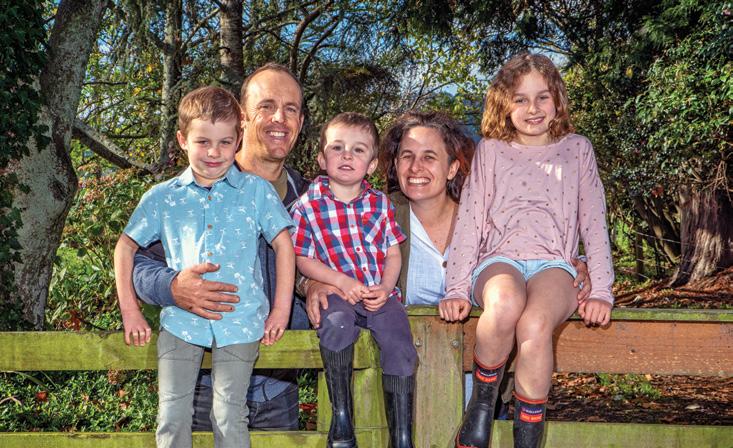INSIGHT
$
UPFRONT SUSTAINABLE FINANCE
$
$
Sustainable finance impacts agriculture Rather than saying ‘so what’ to ethical investing, farmers need to be aware that banks will be taking this into account when assessing their business. Phil Edmonds outlines what sustainable finance means for the dairy industry.
O
ver the past few months a growing list of New Zealand investment funds have announced changes to their strategies, with dedicated shifts towards socially and environmentally responsible investing. Among others, Mercer declared in April it would be divesting shares in companies including those involved in the most carbon intensive industries. At the same time the tool Mindful Money was being promoted to allow anyone to generate details on the ethical nature of their Kiwisaver investment, identifying those funding the bad stuff, including environmental violations. Having scanned this passage and found no reference to agriculture, farmers might say ‘so what’. But the banks are also in this camp, which should give cause to read on. In the process of documenting the impact on the environment from their own investments, banks could well start to stare 14
at farming-related assets that show fewer signs of holding their value, and more signs of damaging the banks reputation. The NZ banks won’t be giving up on agriculture as a result of its environmental risks anytime soon. In fact, they are proactively developing a framework that will enable farmers to attract what has become known as sustainable finance. But the move to transparent investment reporting to meet the demands of ethical investors and now the government means the writing is on the wall for those doing it the old way. The emergence of a more globally active ethical investor community can’t be blamed on Covid-19 (believe it or not) but it certainly has become more visible over the past year, tied inevitably to the growing groundswell of concern about climate change. The picture of an ethical investor might well conjure up an individual with some
disposable spare change buying a handful of shares in a company making sleeping bags out of old socks, rather than Rio Tinto. Don’t be fooled. Ethical investing is no longer discretionary. It is fast becoming conventional business practice. A Rabobank paper published in late 2020 titled Cashing in on Sustainable Agriculture noted that large financial institutions are increasingly looking beyond traditional investment metrics to determine their viability, “and as a result are starting to actively divest investments that present a high sustainability-related risk.”
BUSINESSES REQUIRED TO MAKE CLIMATE CHANGE DISCLOSURES
The private sector may have started this but regulation is on the way to support it. In mid-April the NZ Government introduced legislation that will require the financial sector to disclose the impacts
Dairy Exporter | www.nzfarmlife.co.nz | May 2021


























